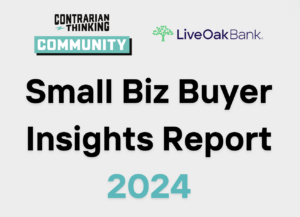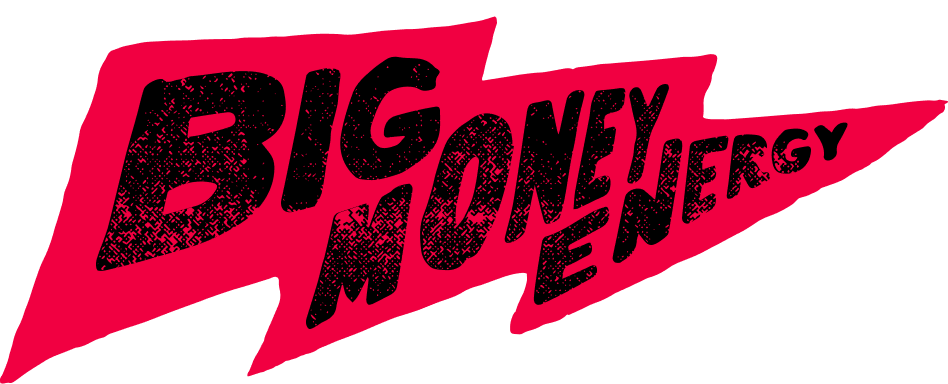
Up to 90% of Americans feel anxiety about cleaning their home.
And yet, dirt, dust, and streaks always come back.
Plenty of people find it overwhelming or just frustrating to clean.
And frankly, who can blame them? Does anyone really want to spend their Saturday scrubbing toilets?

Herein lies the genius behind this simple boring business idea: people want to maintain a clean home, can’t keep up with it (or don’t want to), and are willing to pay for outside help.
And some people (like you) are willing to turn a profit where other people see a dull chore.
- Low startup costs
- Very few technical skills needed
- A desirable service
That’s like the boring business trifecta.
But it can take a while before big profits start coming your way. There’s only so much time you can spend cleaning. You’ll need to scale up and hire a team if you want to build a successful cleaning business.
That’s one of the reasons why we recommend buying an established cleaning service instead of starting one.
Here’s what you need to know about starting a cleaning service and why buying an existing one is a better option.
A Down and Dirty Overview of the Cleaning Industry

The cleaning industry mops up nearly $90 billion in revenue each year.
Most housekeepers earn $29,000-$34,000 a year, but that income may grow with a bigger team and more services.
On the bright side, a cleaning business requires so few startup supplies that most of your earnings are yours as opposed to paying off equipment loans or leasing a commercial space, which you might need with other business types.
And cleaning businesses can scale up into profitable enterprises.
Just ask Kirk Kellus and Jon Roe of Clean Impact LLC. In 2018, with no professional experience in the world of cleaning, they built their company off the complaints business owners shared about keeping their offices clean.
Their business exploded and continues to keep them busy even in a city with a population of only 114,000.
You can do what Kirk and Jon did and start your own business, but it will take time and effort to get up to the same scale. You’ll also need to worry about getting your first customers, hiring and training your crew, and all the tiny details that come with starting up.
You can cut right to the chase by buying a cleaning service.
You’ll get access to a business that already has customers, staff, processes, and supplies. Even better, you’ll start off with a business that already has cash flow for operating expenses and profit.
When you buy a business, your job isn’t to worry about getting something off the ground. It’s all about finding opportunities to optimize and grow your new service.
But if you really want to open your own cleaning company, follow these steps:
- Identify your niche and target market
- Create your business plan
- Finance your cleaning business
- Register your business
- Complete your pre-launch checklist
- Find and market to potential clients
1. Identify Your Niche and Target Market
Two major ways to specialize in the cleaning business:
- Residential cleaning services
- Commercial cleaning services
Some companies focus on one or the other, and bigger operations may do both.
Of the two, it’s easier to start a residential cleaning business.
Commercial cleaning jobs will make you more money, but they require more supplies. You also need to operate outside of typical business hours. Many commercial cleaners work overnight or on weekends.
You can run your residential cleaning biz as a one-person operation. Just know that you’ll need to start hiring soon if you want to reach a comfortable paycheck.
Another way to specialize is by offering one-off support or ongoing contracts whether you choose to start a residential or commercial cleaning business. Ongoing contracts get the edge due to the recurring revenue, but they make up a really small portion of the overall market for cleaning at 10%.
Lots of people need one-off help, so your service might aim to help people with:
- Move-in and move-out cleaning
- Deep cleaning needs for hoarders
- Preparing a home for showings/real estate sales (which you may be able to parlay into recurring work if you build relationships with real estate agents)
- Downsizing
- Estate/probate clearouts
- Cleaning help for the elderly or people with limited mobility
- Preparing for dinner parties or other home events
- General cleaning needs
You could charge an hourly rate for cleaning jobs or choose to base your price on square footage. You can also boost revenue by charging more for deeper cleans.
Although it’s easy enough to offer general cleaning to both residential and commercial customers, you’re not limited to this, either.
Within residential cleaning, you can offer specializations, too, like this woman who went from standard grime to crime scene cleanups:
You might live in an area where the population has a high need for cleaning in general. That can include:
- Areas near good schools with lots of parents who have multiple kids
- A high percentage of elderly people living on their own who need help
- Military communities near bases where people are constantly moving in and out
Do some local market research before you launch to make sure there’s a need. Follow these steps to verify there’s a shortage of reliable, high-quality cleaning solutions in your area:
- Find out every cleaning business in your area
- Scope their website or call them for pricing/contract info
- Find out their soonest availability (if they are close to fully booked, there may be room for your biz)
- Read through online reviews of complaints and comments to find ways you could improve and attract potential customers
Buying an established business allows you to shortcut this step.
The previous business owner already took the time to choose a specialization and figured out how to mold their business around it. You may see opportunities to expand in that niche. Or you might find underserved needs in the market that you can satisfy.
2. Create Your Business Plan
A business plan outlines your market research but also includes important details like:
- What business structure you’ll use, such as a sole proprietorship or limited liability company (LLC)
- Your launch budget and ongoing operational costs
- Your marketing plan
- Any registration and compliance requirements
Your business plan is the guiding document for your business. This is your place to define the short and long-term goals for your business. It’s also important if you ever need to seek financing from a bank or investors.
Building a solid business plan takes time and a lot of thought.
Buying a cleaning service requires a different type of business plan. Instead of writing down how your business will start up, you’ll look for ways that you can make the business more profitable.
3. Finance Your Cleaning Business

Starting a 1-person cleaning business comes with a low barrier to entry. Once you acquire some basic cleaning supplies and some marketing material, you can get down to business.
The basic supplies for a cleaning business include:
- Trash bags
- Paper towels
- Microfiber rags
- Dustpan/broom
- Dusters
- Mop and bucket
- Vacuum cleaner (and carpet attachments)
- Rubber gloves
- Cleaning brushes
- Disinfecting wipes and glass cleaning wipes
- Spray bottles for cleaners
- Shoe covers
Expect to spend $300-500 for these initial supplies. If you do not plan to use your own car, add in funds to buy or lease a company vehicle.
You could self-fund a 1-person cleaning business. But you’ll need more money for staff or specialized machines if you aim for commercial contracts or want to clean up crime scenes from the start. If you do need some launch cash, look into business loans or area grants.
But there’s still a big problem here.
Even though this business is cheap for 1 person to start, you’re still limited by time. You can only clean so many homes or offices in a day. Profitability in the cleaning industry only comes with staff and scale.
That’s why buying a business with staff is such an attractive offer.
And It’s not hard to find these opportunities.
You can find services for sale right now on sites like BizBuySell and BizQuest. And you can find off-market cleaning businesses on BizScout, a site that we own to help entrepreneurs find their next boring business.
You might think that buying a business is out of reach, but there’s one financing option that you need to know about—seller financing.
With seller financing, you make an offer to the owner where you buy the business for a low upfront investment. Then you pay the previous owner back out of your new business’s profits. You may even be able to convince the old owner to stay on for a time to show you the ropes.
4. Get Your Business Registered
Treat the business like a business from day one.
Choose a solid name that clearly communicates what you do. You might register your business with the county or state as an LLC with another name, but make sure to file a separate DBA (doing business as) name if so.
Then complete the following:
- Make sure no one else is operating with that name in your region or state
- Get an Employer Identification Number (EIN) for the business
- Register the business with the Secretary of State
- Review any requirements for carrying a license as a cleaning business (some states mandate this)
- Research liability insurance
- Once approved, open a business bank account with the company name
The advantage of buying a business is clear here.
A cleaning business that’s been open for a while will already have completed these steps. You won’t have as much of a headache getting registered, and you can get down to business almost right away.
5. Complete Your Pre-Launch Checklist
Before you book your first cleaning gig, run through this checklist to verify you’re ready to go:
- Choose and purchase all equipment, including a container to carry the materials into someone’s home or office
- Set up pricing and service packages (take some inspiration from your earlier market research)
- Document your cleaning procedures (create your own task lists and standards)
- If you’re running a commercial business, reach out to suppliers to form relationships
- Launch your website and make it easy for people to contact you for cleaning jobs (consider adding software like online booking or estimation tools, too)
This is another step that you can cut out when you buy a cleaning business instead. A good business purchase is one that already has the equipment, processes, supplier relationships, and a website.
6. Find and Market to Your Clients
Getting your foot in the door of the cleaning industry is not always easy.
With no reviews and a relatively unknown reputation, you may need some creativity to book your first few jobs.
As a limited-time marketing strategy, launch specials or coupons could encourage some people to give you a try. Reach out to your network, friends, and family, too. Word of mouth is powerful, and there’s sure to be someone they know who could use a deep clean.
To get your name out there:
- Claim social media profiles, especially on Facebook
- Create your logo and branding materials, putting them on things like brochures or business cards
- Set up a business profile on the NextDoor app
- Claim your Google Business Profile and include contact info and hours
Once you get your first few clients, encourage them to review your business.
It’s vital for credibility and will increase the chances of a conversion from a random website or social media profile visitor.
You might also offer rewards for customers who send other business your way. Maybe you offer $20 off their next cleaning and their friend’s first cleaning, for example.
Or partner with other companies in your area for cross-promotions. You might do something like spring cleaning specials with an organizer, pressure washing company, or landscaping business.
This is another obvious advantage to buying a cleaning business: it already has some customers.
An existing business may not have stellar marketing from the day you buy it. But they already have cash coming in from existing customers. You can use that money as a cushion while you get your marketing engine running.
Know How You Will Grow the Business

The real opportunity in a cleaning business blooms when you keep your eye on the future.
There’s nothing wrong with cleaning homes yourself, but you’ll start off closer to the growth phase when you buy one.
You can expand your revenue whether you start a new business or buy an established one. The timetable is just longer when you start a new business.
Here are a few options to think about when you are ready to grow:
- Adding more services
- Selling the same services in new regions (hello, franchising!)
- Adding new team members to take on more projects
Most people who start a cleaning company don’t want to stay buried in the day-to-day forever, so continue revisiting your plan for growth.
Plan to Hire and Train Staff
You cannot expand your business footprint without good staff. Your policies and expectations come into play here big-time since you want every customer to experience the same standards no matter which cleaner shows up for them.
Look for staff who:
- Pay attention to detail
- Enjoy learning
- Remain open to feedback
- Have a track record of reliability
The better you make their workplace, the more likely they’ll stay. To reward hard-working staff, Kirk and Jon of Clean Impact LLC offer team incentives in addition to continuing training.
With a solid team culture and clear values, you’ll improve employee retention and deliver more consistent results for clients, too.
Focus on Customer Service and Retention
By now, you probably see all the reasons why a cleaning company tops the list of ideal boring businesses. But it does take ongoing work to build your brand.
You can’t run a cleaning business without customers. So thank them!
Listen to your customers. Take their feedback and ideas.
Make it easier for them to hire you, such as using a CRM to track the last time you worked together.
Ask for reviews and testimonials.
Heck, even throwing a once-a-year party for your top customers can strengthen that brand loyalty by showing them you really care.
It’s a Clean Sweep
It takes very little money or formal training to succeed in the cleaning business. It’s hard work, but it’s also fulfilling. You could start this business from scratch very quickly, especially if you live in an underserved area.
But you’ll have an even easier time if you buy an existing cleaning business and improve it. You’ll cut down on your time to profitability by using the processes, team, and customer base that the previous owner built.





